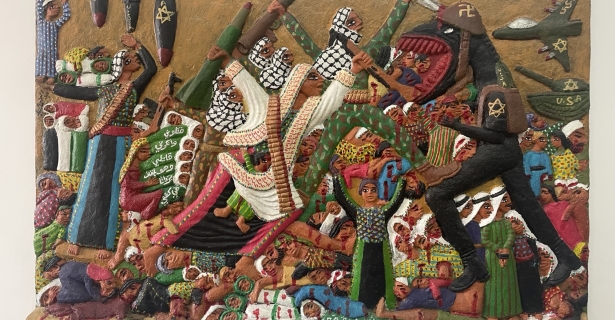I started my day with an enriching interview with Dr. Jalal Al Husseini, a researcher and fellow at the French Institute for the Near East here in Amman. I learned a lot about the history of Jordanian-Israeli relations—why and how they came to be. From late King Hussein's reasonings and strategies to the London negotiations, Jordan was unlike any other Arab country before the Abraham Accords. After Jamal Abdennasser had made a cold peace with the Jewish State, Jordan's late king was aiming for a warm peace. Although Israel was and still is largely viewed as an occupying power, a colonial project that perpetuates the Western tradition in the region, late King Hussein was hosting huge waves of refugees from the Nakba while negotiating a pathway to peace with the Israelis. Palestinians in Jordan are today thought to be a majority by all scholars I have met with so far, although the census does not ask about origins anymore.
On my way there, I was reminded by my first taxi driver of the stories that fall under the theme of my research topic. I am very grateful I speak Arabic because, throughout this trip, I got to spark conversations with taxi drivers who tell me about their families coming to Jordan from Palestine in 1948, 1967, or even from Kuwait in 91. Some share that they have decided to apply for a visa through the Israeli Embassy in Amman to be able to visit their families and homeland in Palestine, while others stick to a strict boycott of the Occupation. Some even opened up about their desire for peace in the whole region and for reconciliation among all peoples and countries, almost regardless of the generational trauma they deal with because of their displacement and occupation. I enjoy research and International Relations at large because I believe human connections and stories are at the core of it all. Beyond International Law and global governance, Jordan has been and still is home to millions of stories I am very happy I got to hear.
As a team of 8 Tufts students traveling together, we get to gain and learn a lot from each other. In fact, I connected Dr. Al Husseini with three of my friends researching Palestinian identity in Jordan, support for Palestinian refugees, and even economic opportunities for women. On my end, I also was able to connect with Dr. Oraib Al Rantawi, a lead scholar on Israeli policy, history, and foreign relations at the Al-Quds (Jerusalem) Center for Political Studies, located here in Amman. I look forward to meeting with him tomorrow morning—Friday.

